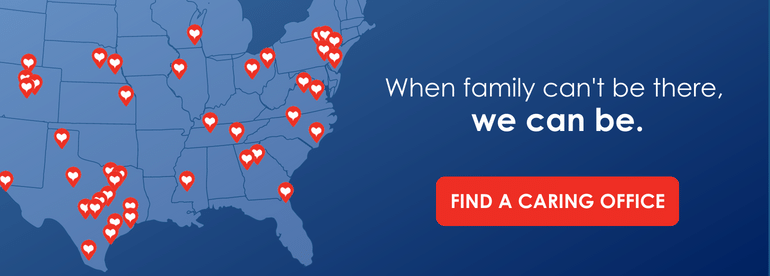Gender roles continue to dilute as more men assume household responsibilities and provide care for parents or spouses. In 2012, Pew Research Center's Internet and American Life Project published a report stating 45% of men are caring for ailing family members. Learn more about the rising role of male caregivers.
Male Caregiving Is Mainstream
Today, it isn't uncommon to receive senior care from a male caregiver. These caregivers often face similar financial and personal circumstances as female counterparts. The rising rates of male caregivers are often a result of adult men caring for a family member with a chronic illness, like Alzheimer's or dementia. Statistically, however, most male caregivers care for a senior female, usually their mother or spouse.
Family caregivers, both male and female, take on the responsibility of taking for their loved ones. However, their approach may be a little different.
Differences between Male & Female Caregivers
While caregiving is pretty standard throughout the country, there many be some differences between how men and women provide care for others. Here are a few examples of how care might be a little different:
-
Men may be a little more uncomfortable with hands-on personal care, although that can be a challenge for any caregiver.
-
Female caregivers may be more open about feelings of stress caused by their caregiving responsibilities. Men may be more reluctant to open up about depression, stress, exhaustion, and other issues that can result in them not getting the emotional support they need.
-
Male caregivers are often more physically strong when compared to their female counterparts, which can make performing certain tasks easier when caring for seniors.
All caregivers should know that there are support groups, resources, and online communities out there that can help you adjust to the role of a caregiver despite any differences in approaching caregiving.
Both men and women are breaking gender barriers by mixing it up at work and in homes, transforming tradition. Community customs are changing and as more clinicians diagnose women with Alzheimer's Disease each year, we can expect the number of male caregivers to continue to rise.


